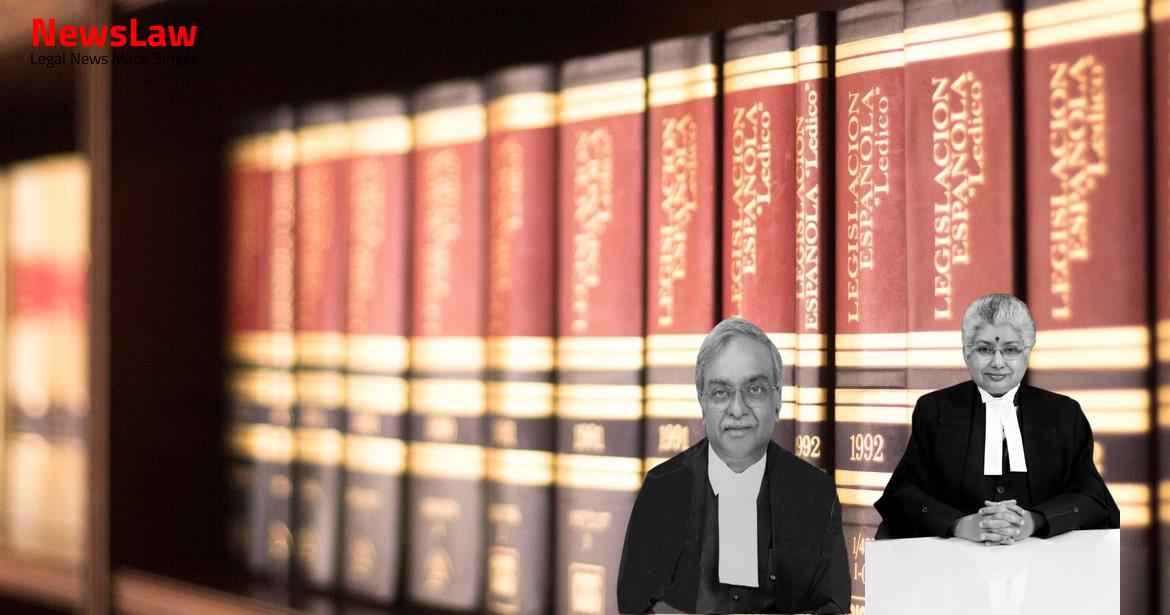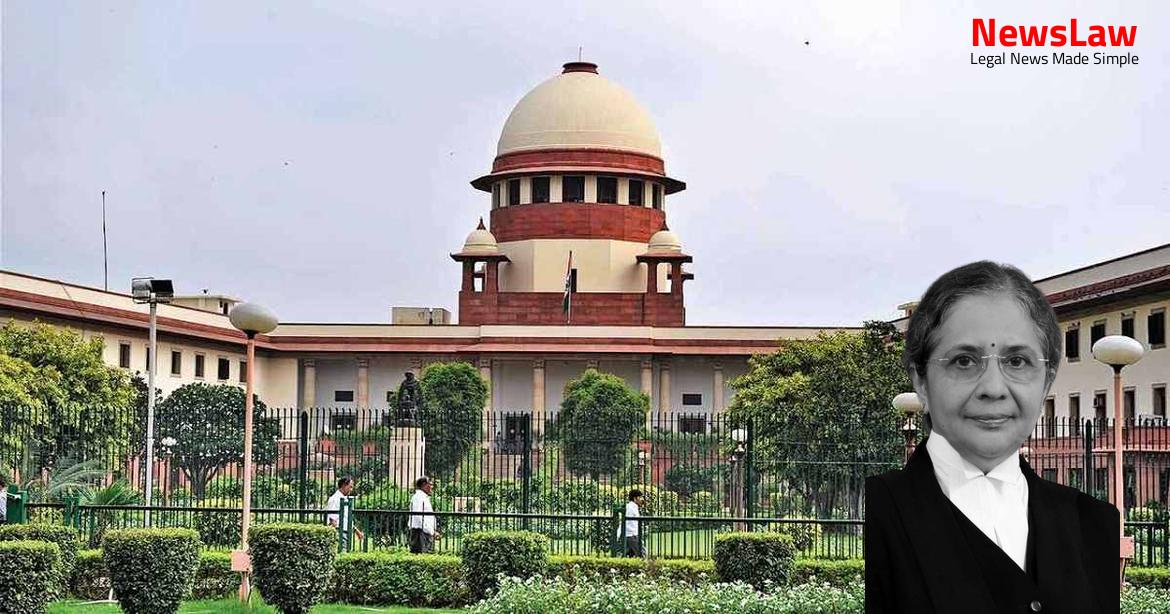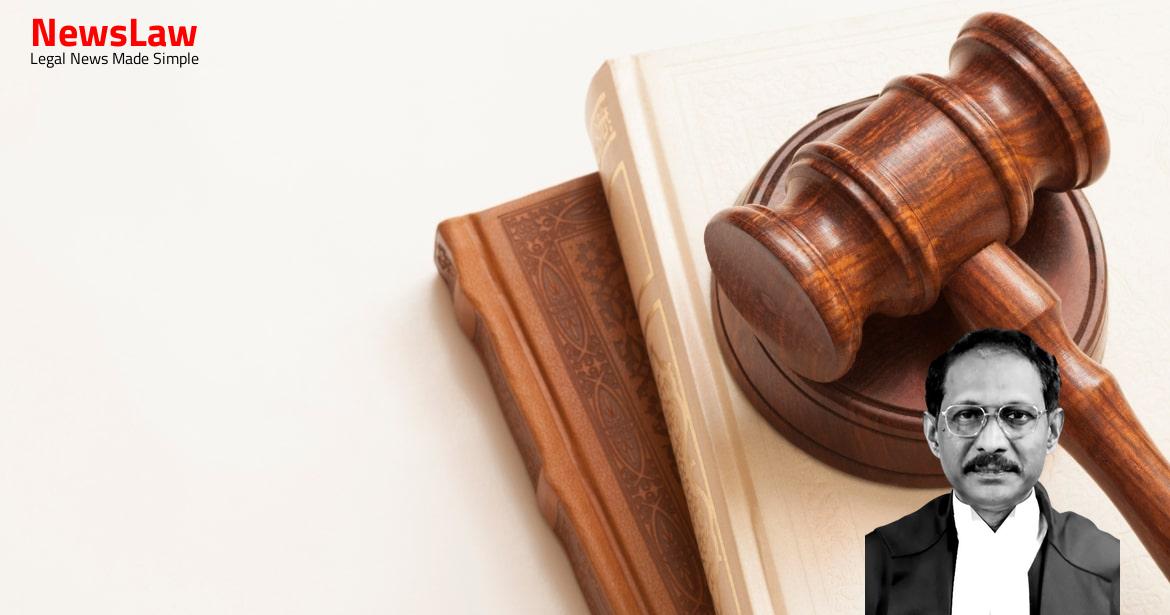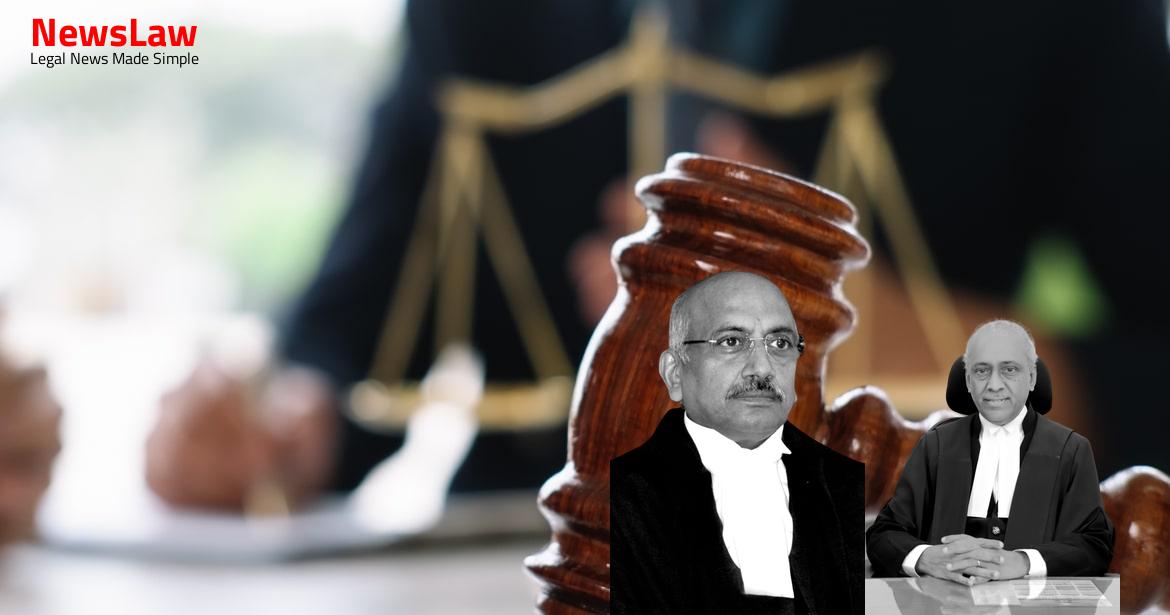Explore the in-depth legal analysis conducted by the court regarding the complex issue of determining seniority based on ad hoc service in a recent case. The court’s exploration of the interplay between ad hoc appointments, due procedures, and regularization sheds light on the intricacies of seniority determinations in the legal landscape. Stay tuned to unravel the nuanced legal principles at play in this insightful case analysis.
Facts
- The Single Judge observed that initial appointments made without following due procedure would not count for determining seniority.
- Rule 9 of the Punjab Civil Secretariat Rules 1976 determined seniority based on length of continuous service in a cadre.
- The judgment in Malook Singh’s case was considered final and binding between the parties involved.
- Regularization of services would relate back to the date of initial appointment for determining seniority and benefits.
- Persons appointed through due process and not part of earlier proceedings were not bound by previous decisions.
- Contempt petitions were filed for non-compliance of the Single Judge’s judgment.
- The Division Bench dismissed the Letters Patent Appeals related to Malook Singh’s case.
- The Division Bench clarified that persons regularized from a certain date would rank senior to those recruited after that date.
- An appeal against the Division Bench’s judgment was dismissed by the Supreme Court.
- Ad hoc service followed by regularization was not considered for fixing seniority as per settled law.
- The appellants to the proceedings were granted seniority with effect from their dates of initial appointment by including the period of ad hoc service.
- Ad hoc appointments were resorted to in anticipation of regular appointments by various appointing authorities.
- The services of ad hoc employees were regularized due to their experience and potential hardship upon ouster after a considerable period of service.
- The regularization policy stipulated various conditions to be fulfilled for the regularization to become effective from 1 April 1977.
- During the pendency of contempt petitions, the seniority list was redrawn and finalized by an Office Order dated 14 January 1994.
- A batch of seventy-three clerks challenged the seniority position standing on 31 December 1978 in a writ petition.
- The State of Punjab contested the proceedings against the regular appointment candidates appointed after 1 April 1977.
- The High Court disposed of the contempt petitions on 12 August 1994 where seniority would be determined for regularly appointed candidates.
- A batch of writ petitions was filed to challenge the fixation of seniority by the High Court.
- The Single Judge allowed the writ petitions of private respondents who claimed ad hoc service benefits towards seniority.
- During the past decade, all appellants and respondents have been promoted and most have retired from service.
- The fixation of seniority was challenged without a formal hearing by the persons instituting the petitions.
Also Read: Electoral Malpractices in Mayor Election
Arguments
- Mr P S Patwalia, learned senior counsel representing the appellants, argued that all appellants have received promotions and retired over a decade ago.
- The initial ad hoc appointments of the appellants were not back door entries as they were selected through regular selection committees.
- The judgment in Malook Singh’s case binds the parties involved, despite being disapproved in another judgment.
- The State is bound to give effect to the decision in Malook Singh, and the appellants seek protection of their pensionary payments.
- Ms Anusha Nagarajan, representing the State of Punjab, argued that the claim for counting ad hoc service in determining seniority was not decided in the Letters Patent Appeal.
- Order of regularization dated 3 May 1977 specified that seniority shall start from 1 April 1977, and inter se seniority among ad hoc employees would be based on the length of ad hoc service.
- The respondents in CWP No. 2780 of 1980 were directly recruited after 1 April 1977, hence their seniority was decided differently.
- The impugned judgment of the Division Bench would need to be sustained as per Mr Sinha, representing some private respondents.
- Mr Sinha highlighted the practical difficulty of revising seniority lists for individuals appointed in 1977 who have since retired.
- Mr Surjit Singh Swaich, representing another group of petitioners, argued that ad hoc service should not count for seniority if the due procedure was not followed during the original appointment.
- The High Court rejected the claim due to Malook Singh not being considered an authority for the proposition that ad hoc service prior to regularization should count for seniority.
- The issue of seniority in relation to ad hoc service prior to regularization has been left open in a Letters Patent Appeal against the Single Judge’s judgment.
- The Division Bench’s judgment of the High Court is considered sound as per first principles.
- The counter affidavit filed by the respondents stated that the State of Punjab’s policy in 1977 on regularization clarified that seniority would be determined from the date of regularization.
Also Read: Balancing Power and Transparency: Electoral Bonds Struck Down, Disclosure Mandated
Analysis
- The judgment in Malook Singh was subsequently overruled in Gurmail Singh, raising questions on who would be bound by the original judgment.
- Res judicata operates in personam, while the law of precedent operates in rem, explaining the distinction between the two legal principles.
- The judgment binds only those who are parties to the proceedings, some of whom have already retired.
- The policy of regularization issued on May 3, 1977, specified the criteria for seniority reckoning and the date of regularization.
- Retrieving accurate data to rework seniority from 1977 would be challenging and lead to further litigation.
- Equating ad hoc service for seniority purposes with regular appointments would violate the principles of equality under Articles 14 and 16 of the Constitution.
- Revision of seniority from such distant past would impose a significant burden on the State.
- The judgment in Direct Recruit Class II Engg. Officers’ Assn. establishes that ad hoc service cannot be counted for seniority if the initial appointment was a stop-gap arrangement.
- The decision in Direct Recruits does not apply to the facts of the current case, where appointments were made according to rules and subsequently confirmed.
- Those regularized prior to their date of appointment cannot rank senior to those recruited after regular selection procedures post the date of ad hoc employee regularization.
- In 1989, services were regularized after following due procedures and recommendations by the Selection Committee.
- Ad hoc service does not count for determining seniority as per the applicable Rules.
- Once regularization takes place, the length of ad hoc service must count for seniority determination.
- Law of res judicata concerns the same matter, while law of precedent concerns the application of law in a similar issue.
- Services rendered by ad hoc employees prior to regularization cannot be counted for seniority as per the interpretation of Uttar Pradesh Regularization of Ad Hoc Appointment Rules.
- Ad hoc appointments made as stop gap arrangements do not render ad hoc service eligible for determining seniority.
- The judgment in Malook Singh’s case touched upon two main facets: 1. Ad hoc service not counting for seniority as per Rules. 2. Regularization leading to ad hoc service counting for seniority.
- Initial ad hoc appointments were supposed to be stop gap arrangements and were not in accordance with the rules; hence, ad hoc service cannot be counted for seniority determination.
- Private respondents have also been promoted and are receiving pensionary benefits
- Pensioners should not be left in uncertainty after long years of service
- Order issued under Article 142 of the Constitution to ensure justice
- Affirmation of the Division Bench’s judgment on the principle
- Direction given to ensure the continuity of pensionary benefits for appellants
Also Read: Recall of Resolution Plan Approval: Legal Analysis
Decision
- No further directions required in the companion appeals.
- Both sets of appeals disposed of.
- Pending applications, if any, disposed of.
- Pensionary payments to be paid over in accordance with law.
- No recoveries to be made from the appellants.
- Clarification provided on the basis of observations in Malook Singh’s case.
- Clarification provided in both Letters Patent Appeal and Single Judge’s judgment.
Case Title: MALOOK SINGH Vs. STATE OF PUNJAB . (2021 INSC 566)
Case Number: C.A. No.-006026-006028 / 2021



